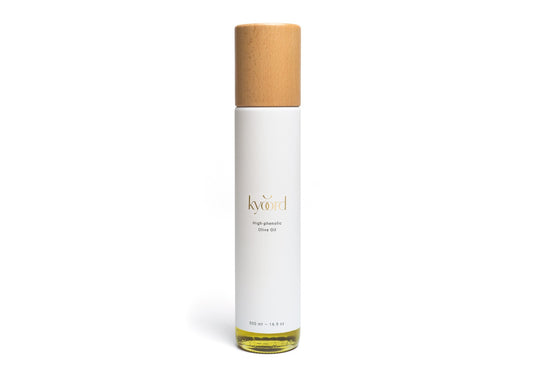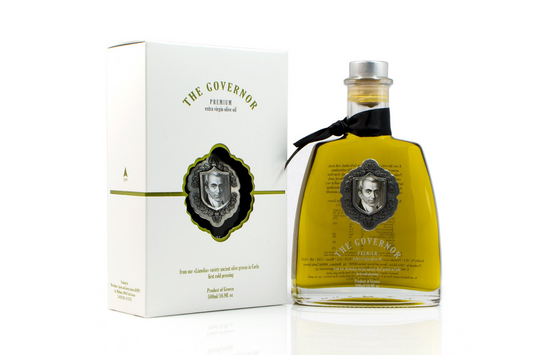Dementia, a condition marked by memory loss and cognitive decline, affects millions globally with dementia-related mortality on the rise. Interestingly, a shift in dietary habits, particularly incorporating olive oil, may offer hope. A recent 2024 study from Harvard University, highlights olive oil’s potential in diminishing dementia risks, sparking interest for those vigilant about their mental well-being.
Groundbreaking Study: Olive Oil and Dementia Mortality
The Nurses’ Health Study and the Health Professionals Follow-Up Study have provided compelling evidence on the benefits of olive oil in reducing dementia mortality. Tracking the health and diet of 92,383 adults for 28 years, these studies offer a comprehensive look at lifestyle’s long-term effects on health.
What were the key findings of the olive oil and dementia study?
The study found that a daily intake exceeding 7 grams of olive oil (about half a tablespoon) was linked to a significant 28% decrease in dementia-related deaths, a statistic that held true across various diet qualities. This underscores the singular influence of olive oil on mental performance.
Further, the research indicates that substituting olive oil for other fats like margarine or mayonnaise, even in small amounts of 5 grams per day, could result in an 8-14% drop in the risk of death from dementia.
Genetic Link of Dementia: APOE ε4 and Olive Oil
The presence of APOE ε4 allele in dementia marks an increased risk for dementia due to its influence on lipid and glucose metabolism. The findings from this study indicate that olive oil’s benefits are not diminished for carriers of the APOE ε4 allele, suggesting a possible protective effect to counteract genetic vulnerabilities.
Olive Oil: A Shield Against Genetic Dementia Risks
Olive oil is thought to offer neuroprotection, largely due to its monounsaturated fats and antioxidants such as vitamin E and polyphenols. Adding olive oil to the daily diet could be particularly beneficial for those with the APOE ε4 allele.
What is the APOE ε4 Allele?
The APOE ε4 allele is a genetic variant linked to apolipoprotein E, which plays a vital role in lipid metabolism. It’s known for its major role on the likelihood of developing Alzheimer’s disease and other forms of dementia. Carriers of one or two copies of the ε4 allele face a greater risk of cognitive decline and are more prone to dementia-related deaths.
Research indicates that even among APOE ε4 carriers, having more olive oil in your diet may lower the risk of dementia-related mortality.
What does that mean for olive oil enthusiasts? It implies that the inherent benefits of olive oil may provide a layer of protection against genetic risk factors for dementia.
Why is olive oil important for brain health?
Olive oil is celebrated for its abundance of monounsaturated fatty acids (MUFAs), with oleic acid being the standout. These MUFAs are pivotal in bolstering brain health, ensuring the structural integrity of cell membranes and enhancing neuronal communication.
Moreover, olive oil is laden with antioxidants such as vitamin E and polyphenols, which are warriors against oxidative stress, a known factor in cognitive decline.
- Monounsaturated Fatty Acids: Predominant in olive oil, MUFAs are crucial for neural function.
- Vitamin E: An antioxidant that protects brain cells from damage.
- Polyphenols: Compounds that reduce inflammation and may protect against neurodegenerative diseases.
Compared to other dietary fats, olive oil stands out for its high MUFA content and low levels of saturated fats. Unlike trans fats found in processed foods, which are detrimental to brain health, the fats in olive oil support cognitive function and may reduce dementia risk.
What plays a role in dementia risk?
Lifestyle factors such as diet, exercise, and mental engagement play pivotal roles in modulating dementia risk. Maintaining a diet rich in fruits, vegetables, whole grains, and healthy fats like those found in olive oil is associated with a lower risk of cognitive decline.
- Diet Quality: A balanced diet including olive oil can contribute to brain health.
- Physical Activity: Regular exercise complements the benefits of a healthy diet.
- Mental Stimulation: Engaging in cognitively demanding activities supports brain function.
Adding olive oil into your diet is a practical step towards holistic health. Simple steps like using olive oil as a salad dressing, cooking medium, or a dip for bread can add this nutritious oil into daily life, promoting cognitive health and potentially even longevity.
Conclusion: Olive Oil can reduce the risk of dementia-related death and can boost brain health
The study’s findings are clear: olive oil is more than a kitchen staple; it’s a beacon of hope for cognitive health. With evidence pointing to an almost 1/3 reduction in dementia-related deaths for those taking 7 g every day, it’s time to consider olive oil as part of a proactive approach to aging.
FAQs: Olive Oil and Your Brain
Which oil is best for brain health?
Extra virgin olive oil (EVOO) is widely recognized as the healthiest choice due to its minimal processing and preservation of natural nutrients and antioxidants.
EVOO, produced through cold-pressing high-quality olives, is abundant in monounsaturated fats, oleic acid, vitamin E, phytosterols, and antioxidants—all linked to robust health and overall wellness. High-phenolic extra virgin olive oils offer even more health benefits due to the high concentration of polyphenols.
How much olive oil per day for brain health?
A consensus on the ideal daily olive oil intake for brain health varies, with recommendations ranging from two to three tablespoons to as little as half a tablespoon. We typically recommend one tablespoon per day of high-phenolic olive oil for a healthier lifestyle and disease prevention, or at least two tablespoons daily to improve pre-existing conditions.
Can olive oil reduce the risk of dementia and Alzheimer's?
Emerging research indicates that olive oil could be instrumental in defending against dementia. Regular olive oil consumers have been observed to have a reduced incidence of dementia-related mortality, a link that remains consistent regardless of diet quality and genetic risk, highlighting olive oil’s potential significance in maintaining cognitive health.
A small study showed that extra virgin olive oil may improve blood brain barrier integrity, and improve memory and cognition in mild cognitive impairment patients.
Another study in mice showed that oleocanthal treatment could improve the behavorial and metabolic changes associated with Alzheimer's Disease, specifically anxiety-like behavior and sleep disturbances.
How to use olive oil for brain health?
The study we discussed suggests an intake of over 7 grams of olive oil daily (about half a tablespoon) correlates with a 28% decrease in the risk of dementia-related death. This association emphasizes olive oil’s value as a simple, yet impactful, dietary measure for cognitive support and longevity.
Is olive oil a good brain food?
Monounsaturated fats and antioxidants are abundant in olive oil, promoting long-term brain health. It has been associated with a variety of cognitive benefits, including a reduced risk in dementia and a potentially important dietary supplement for dementia and Alzheimer's patients.
The best way to get it all is to simply incorporate olive oil alongside a variety of other brain-supportive foods to ensure a broad spectrum of nutrients.









